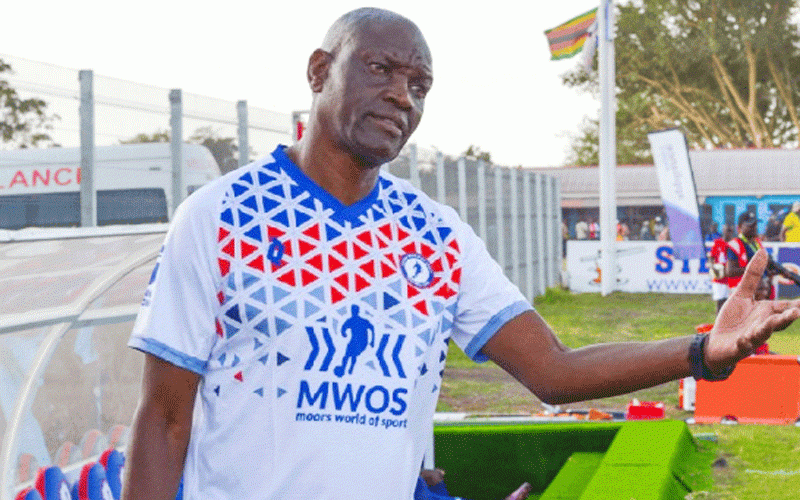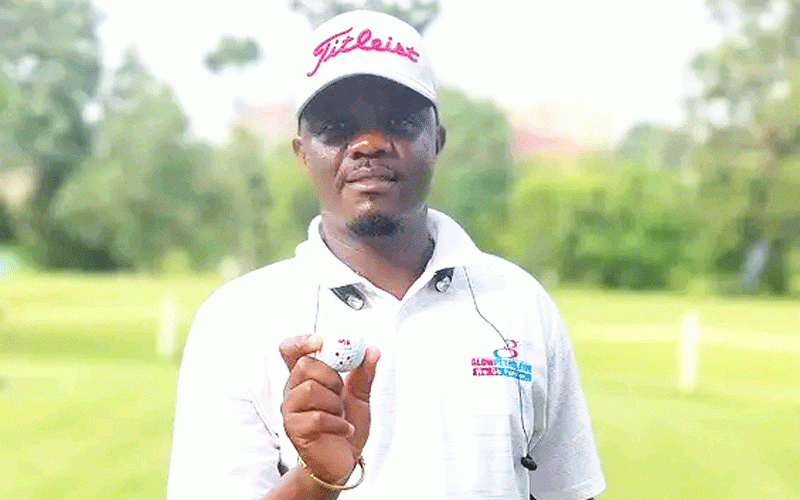
EDUCATION and Sports minister David Coltart yesterday revealed in an interview with IndependentSport that a new Sports and Recreation Commission board will be announced by end July.
The term of the previous SRC board, led by Gibson Mashingaidze, expired last year.
“During the last few months I have engaged in a widespread process of consultation to identify suitable members for a new board,” Coltart said. “I have written to all the registered sports associations in Zimbabwe and have asked them to suggest suitable candidates. I’ve consulted with the Zimbabwe Olympic Committee, the current director of the Sports and Recreation Commission, and other bodies with an interest in sport.
“I now have a shortlist and I am in the process of consulting with the principals of the global political agreement. Within the coming weeks, I will be consulting with the president. In terms of the SRC act, I am obliged to consult the president prior to appointing the board. Once that has been done I will announce the new board; I anticipate that this will be done before the end of the month.”
Coltart said the SRC, the country’s supreme sports regulatory body, will remain in place for now as it falls under the current constitution of the country.
“The role of the SRC is governed by the SRC Act and to that extent is unchanged. However in preparing a shortlist of candidates, I have stressed that I want to avoid board members who have a political background and want to appoint people who are first and foremost sports administrators and people who have a deep love and appreciation for their particular sporting disciplines.
It is also important that the SRC is composed of competent people of absolute integrity who will work hard to root out inefficiency, corruption, racism and tribalism, which factors have often been responsible for Zimbabwe’s underperformance in sport.”
Coltart spoke in depth about developing a new sports policy which will form the basis of guidelines to be used by the new SRC board.
- Chamisa under fire over US$120K donation
- Mavhunga puts DeMbare into Chibuku quarterfinals
- Pension funds bet on Cabora Bassa oilfields
- Councils defy govt fire tender directive
Keep Reading
“The role of government in sport must be to facilitate sport, not organise it or seek to interfere,” he said.
“In my view there has been far too much political interference in sport. So long as sports administrations operate efficiently, lawfully and in a manner which portrays a positive Zimbabwean brand then they should be left alone by government to run their respective disciplines.”
Coltart stressed his desire to root out corrupt and unacquainted administrators.
“Zimbabwe has underperformed in sport in many disciplines and very often it is because sports administrations are run inefficiently and, in some respects, corruptly. Sadly some of our sports administrations are dominated by people who are more interested in what they can get out of the sport than their love for that particular sport or a desire to give back to that particular sport.
“There are some sports administrations dominated by people who have never even played or know the sport they administer. I intend to encourage a new policy which will seek to ensure that sports administrations are run by people with a deep love, knowledge and appreciation for the respective sport they administer.”
Coltart said sports must be seen as a critical component in the quest to rebrand Zimbabwe. He said one of the most effective ways of doing this is through successful sports men and sports women such as Comrades Marathon winner Stephen Muzhinji, Kirsty Coventry, Cara Black and even other Zimbabweans who do not play for national teams such as Springbok player Tendai Mtawarira.
Zimbabwean sport has suffered under low funding by government. Coltart said under the inclusive government, this situation will gradually be corrected.
“We must recognise that sport is business. In many countries throughout the world sport contributes a vast amount to the GDP. Sadly in Zimbabwe sport is largely played at an amateur level and ther is very little professionalism,” said Coltart.Â
He said most of the country’s sporting icons are forced to leave Zimbabwe because they cannot make a living playing sport within Zimbabwe. “While some of the smaller disciplines will not be able to generate much wealth or provide an income for those who play those sports, there are many sporting disciplines which can create employment for thousands of Zimbabweans and which can generate substantial revenues for government.
“For this to happen, he said government will initially have to invest heavily in sport to ensure that equipment is readily available and sports grounds are properly equipped and maintained,” he said.
He however said the investment should not be an ongoing exercise as ultimately sporting disciplines must learn to be self-supporting and profitable. But in the short term whilst still rebuilding the sport, it was critically important that government increased the amount allocated in the budget to stabilise the sector and to assist at in the process of rebuilding.
Coltart said the demise of government schools in the country, which used to churn out talent in previous years, had contributed to the fall of standards at national level.
“There is an important interaction between education and sport,” he said. “One of the reasons the standard of our sporting teams has dropped in the last decade is because less sport is being played in government schools.
“In many government schools sporting facilities have crumbled and as a result there are fewer children playing certain disciplines. That needs to be rectified by adopting a holistic approach to education, by recognising that sport is a critical part of education and that schoolchildren should have the opportunity to have sporting careers just in the same way we would wish them to have the opportunity to have careers as lawyers, teachers, doctors and mechanics. However for children to have that opportunity government will have to invest in the development of sport within all our schools,” he said.
BY ENOCK MUCHINJO











